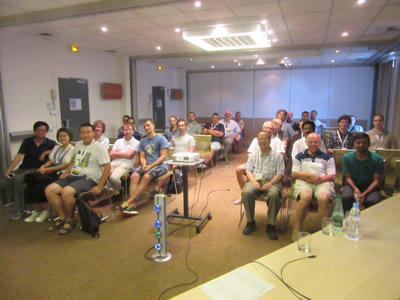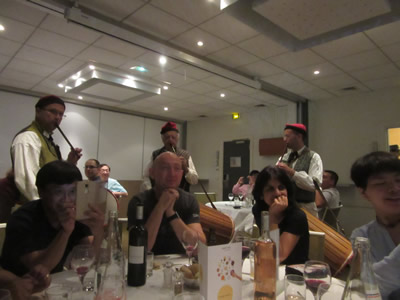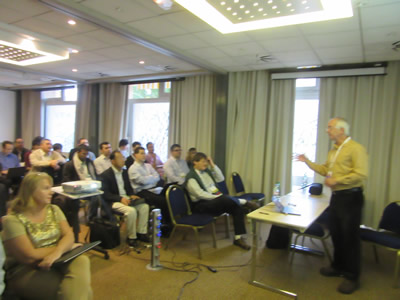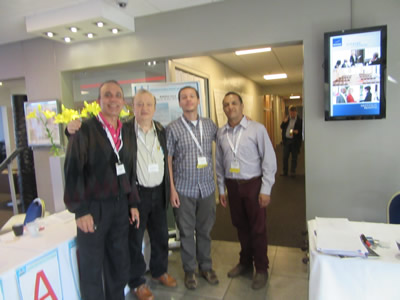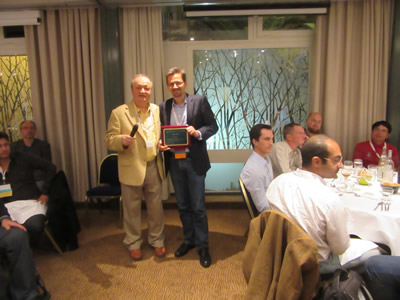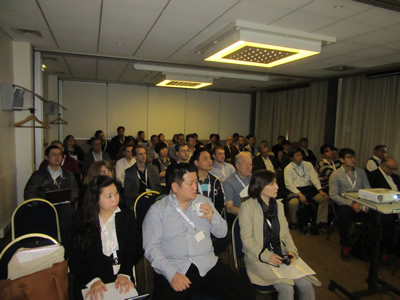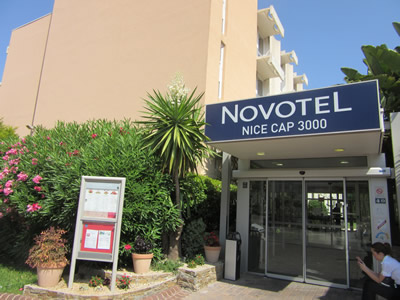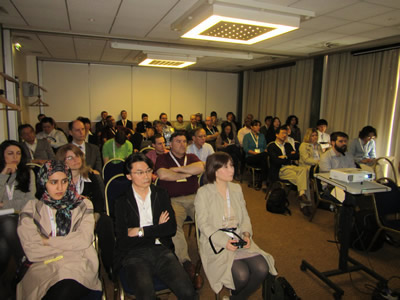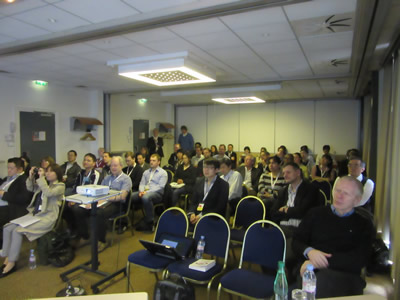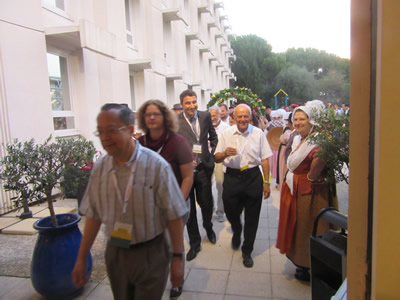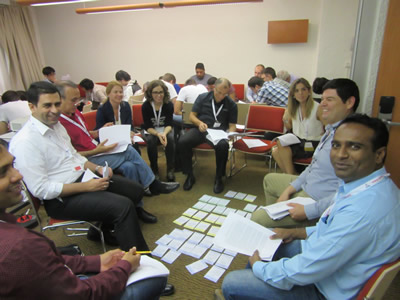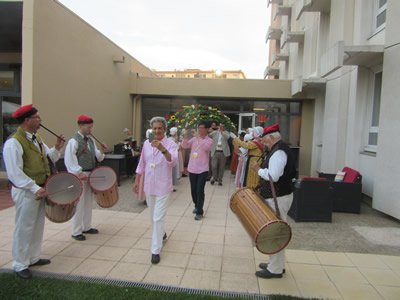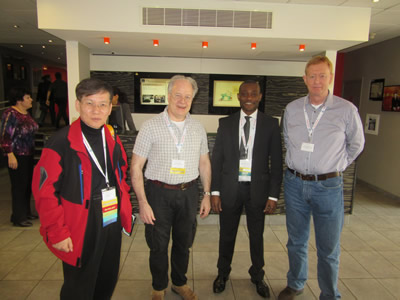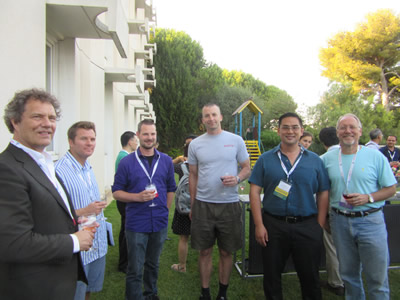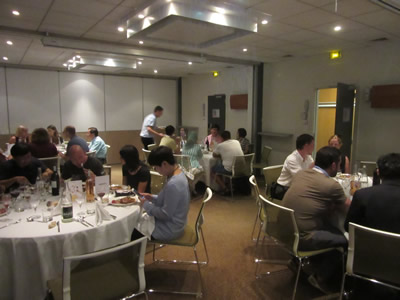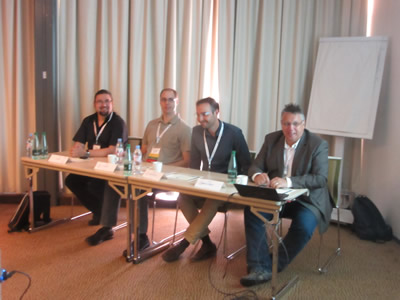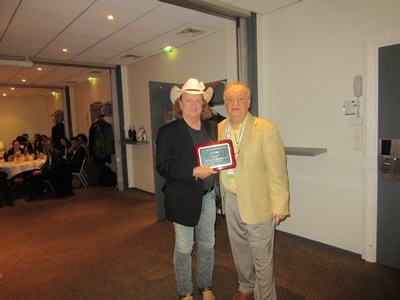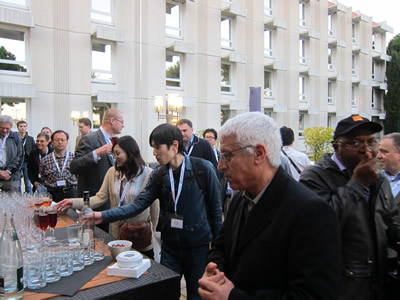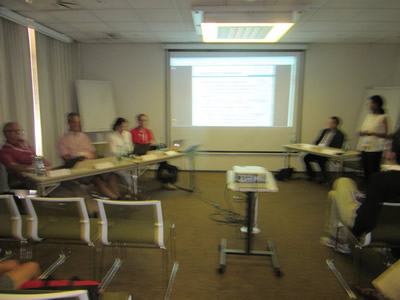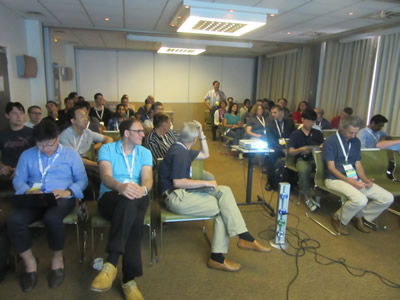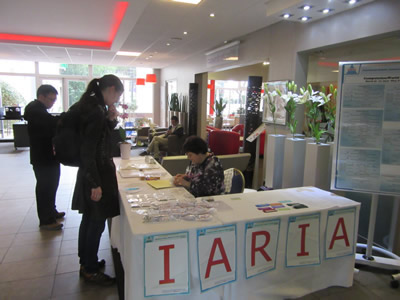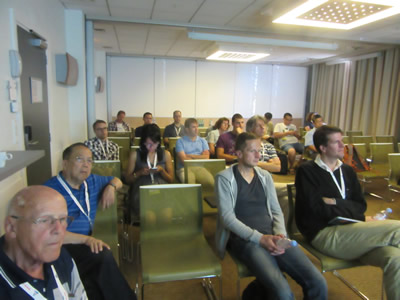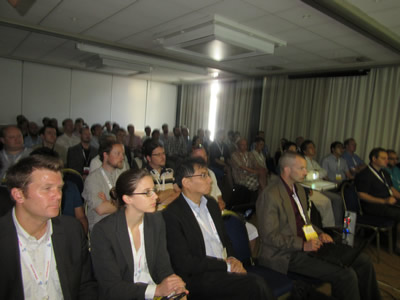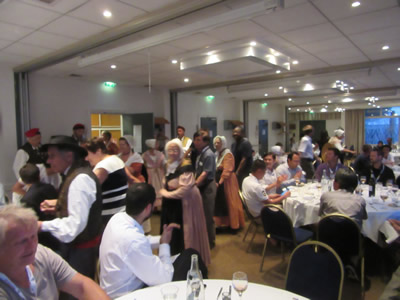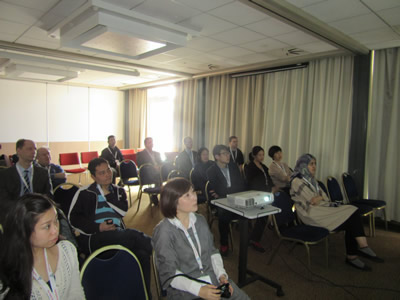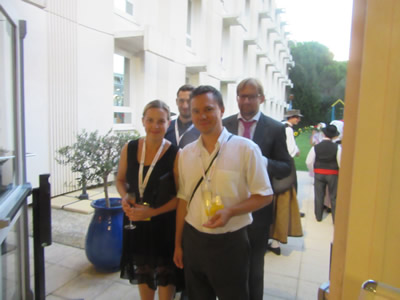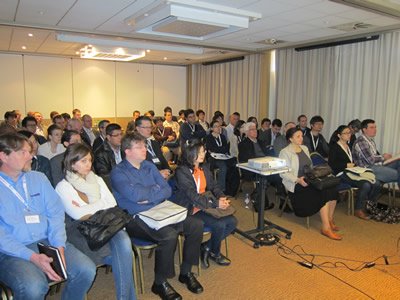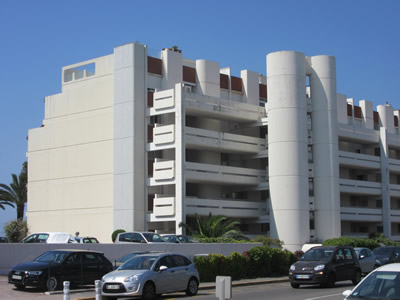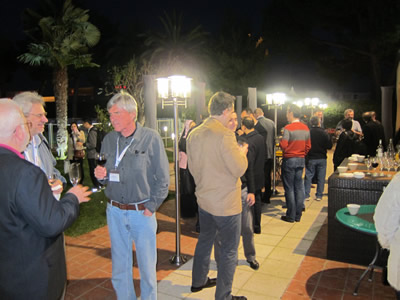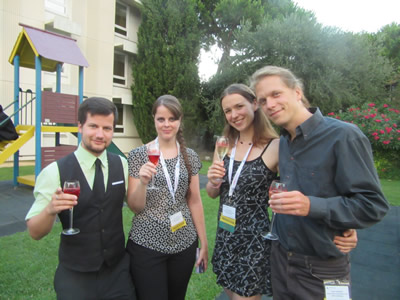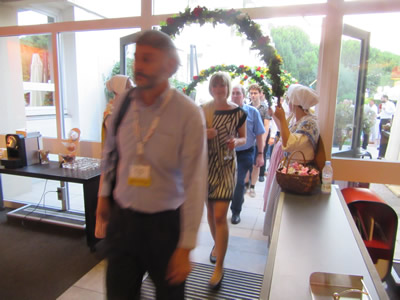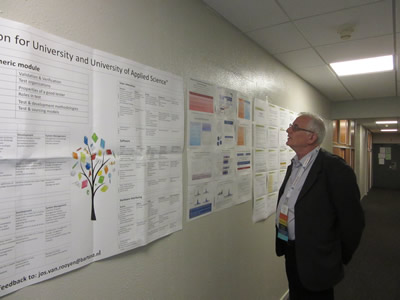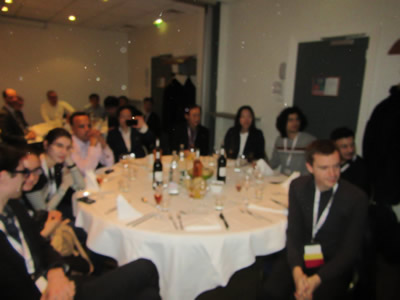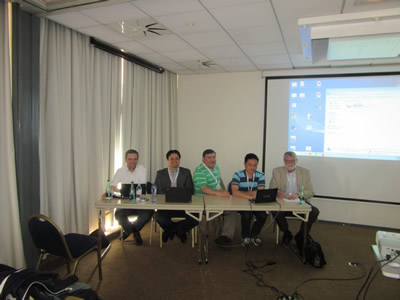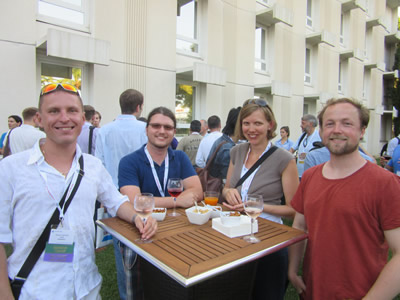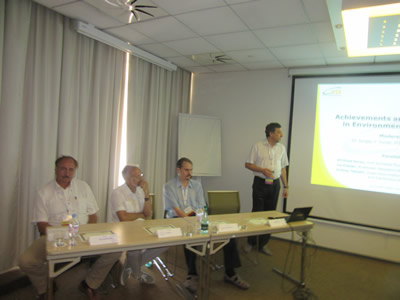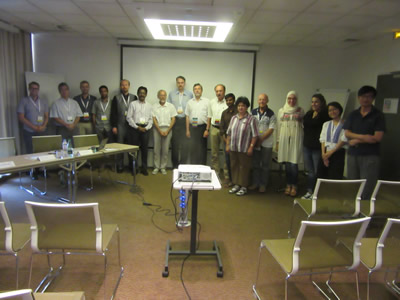ICAS 2018 - The Fourteenth International Conference on Autonomic and Autonomous Systems
May 20, 2018 - May 24, 2018
ICAS 2018
ISSN: 2308-3913
ISBN: 978-1-61208-634-7
ICAS 2018 is colocated with the following events as part of InfoSys 2018 Congress:
- ICNS 2018, The Fourteenth International Conference on Networking and Services
- ICAS 2018, The Fourteenth International Conference on Autonomic and Autonomous Systems
- ENERGY 2018, The Eighth International Conference on Smart Grids, Green Communications and IT Energy-aware Technologies
- WEB 2018, The Sixth International Conference on Building and Exploring Web Based Environments
- DBKDA 2018, The Tenth International Conference on Advances in Databases, Knowledge, and Data Applications
- GraphSM 2018, The Fifth International Workshop on Large-scale Graph Analysis, Management and Applications
- SIGNAL 2018, The Third International Conference on Advances in Signal, Image and Video Processing
Special tracks
IASFR: Intelligent Autonomous Systems for the Future of Retail
Chairs and Coordinators:
PhD. Alina Trifan, University of Aveiro, Portugal alina.trifan@ua.pt
Prof. Dr. Antonio José Ribeiro Neves, University of Aveiro, Portugal an@ua.pt
ASANN: Autonomous Systems with Application of Neural Networks
Chair and Coordinator:
Assoc. Prof. PhD. Irina Topalova, FaGEEIM, Technical University Sofia, Bulgaria itopalova@abv.bg
AR3DP: Autonomous Robot 3D Part Interaction Systems
Chair and Coordinator:
Dr. Faisal Azhar, HP Inc. UK, LTD., UK faisal.azhar@hp.com
ICAS 2018 conference tracks:
SELFTRENDS: Toward brain-like autonomic and autonomous systems
Adaptive robust resource allocation; Optimal self-organized collective actions; Collective adaptation; Active learning; Opportunistic collaborative interactive learning; Adaption fairness; Social and biometric data-aware adaptation; Brain connectivity models; Using unbalanced Datasets; Quantum-inspired optimization; Automated (industrial) assembly environments; Deep neural networks; Multimodal knowledge of the brain; Self-organization in M2M infrastructures; Self-organizing socio-technical systems; Context-aware data self-adaptation; Multi-level loop encapsulation in smart systems; Uncertainty in self-adaptive systems; Adaptive Software defined systems (SDS) scalability; Adaptability in multi-tenant Clouds; Self-aware model-driven systems; Proactive self-adaptation; Self-adaptive urban traffic; Adaptive power profiling; Run-time for self-adaptive systems; Distributed adaptive systems; Self-improving system integration; Self-improving activity recognition systems; Feedback computing; Optimal feedback control; Dynamic adaptive applications; Self-managing Clouds; Decentralized autonomic behavior; Market-adaptive trust; Semantics of self-behavior; Self-organizing patterns; Stability propagation in self-organizing systems; Inconsistency in self-deciding systems; Reasoning problems tractability; Decidability in self-organizing systems
ROBOTRENDS: Robot-related trends
Autonomous aquatic agents; Aerial autonomous robots; Drones control and management; Knowledge-based robot motions; Autonomous mobile robot interaction; Humanoid robots; Intelligent robots; Self-reconfigurable mobile robots; Humanoid imitative learning; Robots in unknown environments; Human centric robots; Adjustable robust optimizations; Moral autonomous agents and human evolution; Cognitive robotics; Robot partnership; Affective communication robots; Human-centric robotics; Visually-impaired and robots; Evolutionary swarm robotics; Robots and human advices; Universal robot hands
SYSAT: Advances in system automation
Methods, techniques ant tools for automation features; Methodologies for automating of design systems;
Industrial automation for production chains;
Nonlinear optimization and automation control;
Nonlinearities and system stabilization;
Automation in safety systems;
Structured uncertainty;
Open and closed automation loops;
Test systems automation;
Theory on systems robustness;
Fault-tolerant systems
UNMANNED: Driver-less cars and unmanned vehicles
Self-driving cars; Drones; Terrestrial unmanned vehicles; Unmanned aerial vehicles; Underwater unmanned vehicles; Unmanned sea surface vehicles; Collision control; Traffic surveillance challenges; Path planning and estimation; Communication between unmanned vehicles; Integration of unmanned aerial vehicles in civil airspace; Unmanned vehicular clusters; Designing unmanned vehicular-based systems; Safety of unmanned vehicles; Commercial and surveillance applications; Emergency applications; Legal aspects of unmanned vehicular systems; Testbeds and pilot experiments
AUTSY: Theory and Practice of Autonomous Systems
Design, implementation and deployment of autonomous systems;
Frameworks and architectures for component and system autonomy;
Design methodologies for autonomous systems;
Composing autonomous systems;
Formalisms and languages for autonomous systems;
Logics and paradigms for autonomous systems;
Ambient and real-time paradigms for autonomous systems;
Delegation and trust in autonomous systems;
Centralized and distributed autonomous systems;
Collocation and interaction between autonomous and non-autonomous systems;
Dependability in autonomous systems;
Survivability and recovery in autonomous systems;
Monitoring and control in autonomous systems;
Performance and security in autonomous systems;
Management of autonomous systems;
Testing autonomous systems;
Maintainability of autonomous systems
AWARE: Design and Deployment of Context-awareness Networks, Services and Applications
Context-aware fundamental concepts, mechanisms, and applications;
Modeling context-aware systems;
Specification and implementation of awareness behavioral contexts;
Development and deployment of large-scale context-aware systems and subsystems;
User awareness requirements and design techniques for interfaces and systems;
Methodologies, metrics, tools, and experiments for specifying context-aware systems;
Tools evaluations, Experiment evaluations
AUTONOMIC: Autonomic Computing: Design and Management of Self-behavioral Networks and Services
Theory, architectures, frameworks and practice of self-adaptive management mechanisms;
Modeling and techniques for specifying self-ilities;
Self-stabilization and dynamic stability criteria and mechanisms;
Tools, languages and platforms for designing self-driven systems;
Autonomic computing and GRID networking;
Autonomic computing and proactive computing for autonomous systems;
Practices, criteria and methods to implement, test, and evaluate industrial autonomic systems;
Experiences with autonomic computing systems
CLOUD: Cloud computing and Virtualization
Hardware-as-a-service;
Software-as-a-service [SaaS applicaitions];
Platform-as-service;
On-demand computing models;
Cloud Computing programming and application development;
Scalability, discovery of services and data in Cloud computing infrastructures;
Privacy, security, ownership and reliability issues;
Performance and QoS;
Dynamic resource provisioning;
Power-efficiency and Cloud computing;
Load balancing;
Application streaming;
Cloud SLAs, business models and pricing policies;
Custom platforms;
Large-scale compute infrastructures;
Managing applications in the clouds; Data centers;
Process in the clouds;
Content and service distribution in Cloud computing infrastructures;
Multiple applications can run on one computer (virtualization a la VMWare);
Grid computing (multiple computers can be used to run one application);
Virtualization platforms;
Open virtualization format;
Cloud-computing vendor governance and regulatory compliance
MCMAC: Monitoring, Control, and Management of Autonomous Self-aware and Context-aware Systems
Agent-based autonomous systems;
Policy-driven self-awareness mechanisms and their applicability in autonomic systems;
Autonomy in GRID networking and utility computing;
Studies on autonomous industrial applications, services, and their developing environment;
Prototypes, experimental systems, tools for autonomous systems, GRID middleware
CASES: Automation in specialized mobile environments
Theory, frameworks, mechanisms and case studies for satellite systems;
Spatial/temporal constraints in satellites systems;
Trajectory corrections, speed, and path accuracy in satellite systems;
Mechanisms and case studies for nomadic code systems;
Platforms for mobile agents and active mobile code;
Performance in nomadic code systems;
Case studies systems for mobile robot systems;
Guidance in an a priori unknown environment;
Coaching/learning techniques;
Pose maintenance, and mapping;
Sensing for autonomous vehicles;
Planning for autonomous vehicles;
Mobile networks, Ad hoc networks and self-reconfigurable networks
ALCOC: Algorithms and theory for control and computation
Control theory and specific characteristics;
Types of computation theories;
Tools for computation and control;
Algorithms and data structures;
Special algorithmic techniques;
Algorithmic applications;
Domain case studies;
Technologies case studies for computation and control;
Application-aware networking
MODEL: Modeling, virtualization, any-on-demand, MDA, SOA
Modeling techniques, tools, methodologies, languages;
Model-driven architectures (MDA);
Service-oriented architectures (SOA);
Utility computing frameworks and fundamentals;
Enabled applications through virtualization;
Small-scale virtualization methodologies and techniques;
Resource containers, physical resource multiplexing, and segmentation;
Large-scale virtualization methodologies and techniques;
Management of virtualized systems;
Platforms, tools, environments, and case studies;
Making virtualization real;
On-demand utilities;
Adaptive enterprise;
Managing utility-based systems;
Development environments, tools, prototypes
SELF: Self-adaptability and self-management of context-aware systems
Novel approaches to modeling and representing context adaptability, self-adaptability, and self-manageability;
Models of computation for self-management context-aware systems;
Use of MDA/MDD (Model Driven Architecture / Model Driven Development) for context-aware systems;
Design methods for self-adaptable context-aware systems;
Applications of advanced modeling languages to context self-adaptability;
Methods for managing adding context to existing systems and context-conflict free systems;
Architectures and middleware models for self-adaptable context-aware systems;
Models of different adaptation and self-adaptation mechanisms (component-based adaptation approach, aspect oriented approach, etc.);
System stability in the presence of context inconsistency;
Learning and self-adaptability of context-aware systems;
Business considerations and organizational modeling of self-adaptable context-aware systems;
Performance evaluation of self-adaptable context-aware systems;
Scalability of self-adaptable context-aware systems
KUI: Knowledge-based user interface
Evolving intelligent user interface for WWW;
User interface design in autonomic systems;
Adaptive interfaces in a knowledge-based design;
Knowledge-based support for the user interface design process;
Built-in knowledge in adaptive user interfaces;
Requirements for interface knowledge representation;
Levels for knowledge-based user interface;
User interface knowledge on the dynamic behavior;
Support techniques for knowledge-based user interfaces;
Intelligent user interface for real-time systems;
Planning-based control of interface animation;
Model-based user interface design;
Knowledge-based user interface migration;
Automated user interface requirements discovery for scientific computing;
Knowledge-based user interface management systems;
3D User interface design;
Task-oriented knowledge user interfaces;
User-interfaces in a domestic environment;
Centralised control in the home;
User-interfaces for the elderly or disabled;
User-interfaces for the visually, aurally, or mobility impaired;
Interfacing with ambient intelligence systems;
Assisted living interfaces;
Interfaces for security/alarm systems
AMMO: Adaptive management and mobility
QoE and adaptation in mobile environments;
Content marking and management (i.e. MPEG21);
Adaptive coding (H.265, FEC schemes, etc.. );
Admission control resource allocation algorithms;
Monitoring and feedback systems;
Link adaptation mechanisms;
Cross layer approaches;
Adaptation protocols (with IMS and NGNs scenarios);
QoE vs NQoS mapping systems;
Congestion control mechanisms;
Fairness issues (fair sharing, bandwidth allocation...);
Optimization/management mechanisms (MOO, fuzzy logic, machine learning, etc.)
Deadlines:
Submission | Feb 07, 2018 |
Notification | Mar 11, 2018 |
Registration | Mar 24, 2018 |
Camera ready | Apr 03, 2018 |
Deadlines differ for special tracks. Please consult the conference home page for special tracks Call for Papers (if any).
